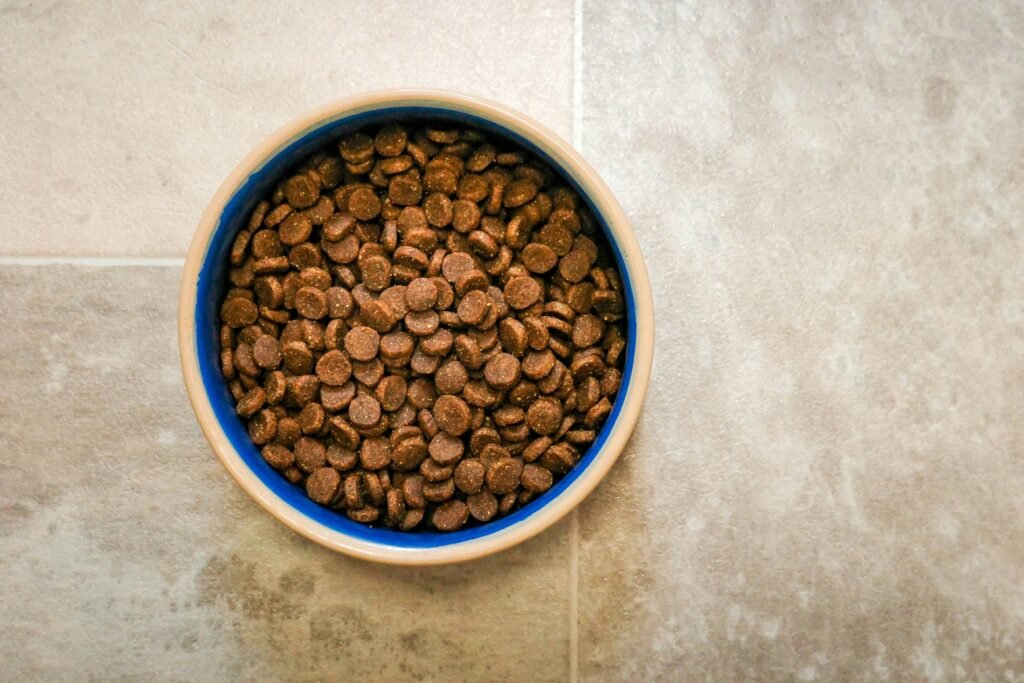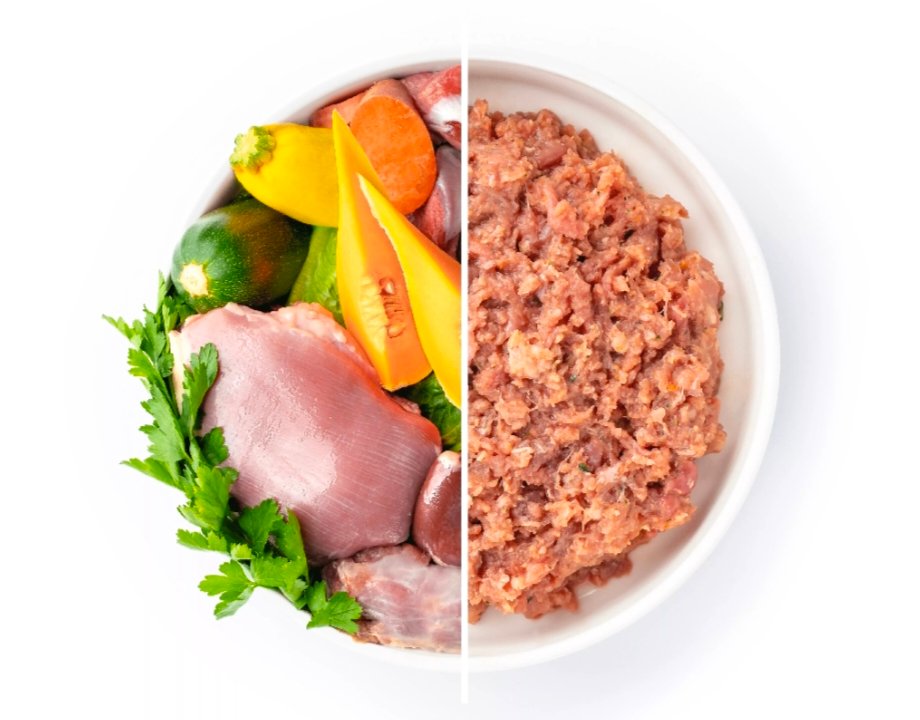TITLE : TYPES OF DOG’S FOODS
When it comes to dog food, there are several options available, each catering to different dietary needs and preferences.
Here’s an overview of the types of dog food
-
Dry Dog Food (Kibble):
- Dry dog food is the most common type and comes in the form of kibble.It typically has a longer shelf life and is convenient for storage and feeding.Many dry dog foods are formulated to meet specific nutritional requirements based on a dog’s age, size, breed, and health needs.Look for high-quality dry dog food with real meat as the first ingredient and minimal fillers or artificial additives.

2. Wet Dog Food (Canned):
Wet dog food is moist and comes in cans or pouches.It often contains higher moisture content than dry food, which can be beneficial for dogs who don’t drink enough water.Wet dog food can be more palatable for picky eaters or dogs with dental issues.Like dry food, wet dog food should also be nutritionally balanced and made from high-quality ingredients.

3.Raw dog food :
Raw dog food consists of uncooked ingredients such as raw meat, bones, fruits, and vegetables.Proponents of raw feeding argue that it closely resembles a dog’s ancestral diet and provides several health benefits.However, raw feeding requires careful planning to ensure nutritional balance and minimize the risk of bacterial contamination.

4. Dehydrated or Freeze-Dried Dog Food:
Dehydrated or freeze-dried dog food is made by removing moisture from fresh ingredients without cooking.These foods retain more nutrients compared to traditional dry kibble and can be rehydrated with water before feeding.Dehydrated or freeze-dried dog food offers a convenient compromise between raw and traditional diets.

5. Prescription or Therapeutic Dog Food:
Prescription dog food is formulated to address specific health conditions or dietary restrictions prescribed by a veterinarian.
It may be recommended for dogs with allergies, gastrointestinal issues, kidney disease, or other medical concerns.Prescription dog food often contains specialized ingredients or nutrient profiles tailored to manage or support certain health condition.
When choosing a dog food, it’s essential to consider your dog’s individual needs, such as age, size, breed, activity level, and any existing health issues.
Consult with your veterinarian for personalized recommendations and guidance on selecting the best dog food for your furry friend. Additionally, gradually transition your dog to a new food to prevent digestive upset, and monitor their health and weight regularly to ensure they’re thriving on their chosen diet.







You are a very intelligent person!
I was just looking for this info for a while. After 6 hours of continuous Googleing, finally I got it in your web site. I wonder what’s the lack of Google strategy that don’t rank this kind of informative web sites in top of the list. Normally the top websites are full of garbage.